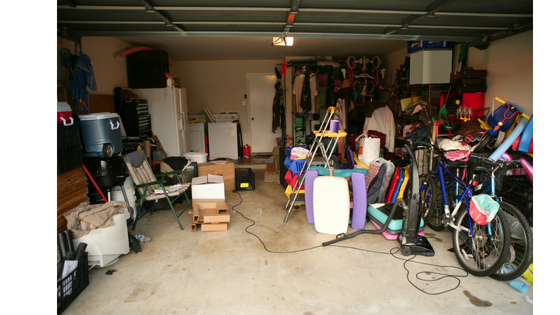Last weekend I cleaned out my garage. Now when I pull into my garage, I breathe easier. Instead of focusing on the clutter — shelves crowded with “someday” projects, the birdseed littered on the floor, dust bunnies and dog-fur tumbleweeds chasing each other — I can simply appreciate being home. My brain isn’t assaulted by the minutiae of all the things that should be taken care of.
It reminds me of trying to help people de-clutter their resumes. We often make the mistake of thinking that a resume crammed with skills and information detailing every task during our tenure at a company is necessary to get us a job.
It is not.
First of all (and you probably know this already), resumes are designed to get you an interview. That’s it. Your resume is not a biography; it is a snapshot. Remember that during the interview process, you’ll have an opportunity to explain in more detail.
Secondly, if you’ve been in the workforce for a while you likely have many projects and accomplishments that you are proud of. Still, you don’t have to include all of them. Here are the questions I use with clients to assess what stays and what goes:
-
What is most relevant to the position you are interested in?
-
Which projects are you the most proud of AND you enjoyed?
-
What accomplishments are so old that, while impressive, the technology, processes or industry have changed so much that they no longer carry the same impact?
Third, format matters. Does your resume highlight what’s important or does it assault the eye with minutiae? Is it easy to read or is it a jumble of fonts and styles crammed together? Did you know it’s ok to have a two-page resume? It is. That said, the reason to have a two-page resume is so that you have room to create white space, not so you can shove in more details. ;)
So those are my tips, but like so many things, knowing what to do isn’t enough to create behavior change. I also want to address the mindset that creates the clutter in the first place.
For example, in my garage I had boxes of beautiful, colorful ceramic tile. I’d purchased them from a high-end tile factory in town where they sold overstock for a discount. I hung onto those boxes because “someday” I was going to create a really cool mosaic walkway. Plus, I’d made an investment—the tiles were not free.
Even though I didn’t want to let go of this really cool idea, I had to look at the facts: I spent around $40 total and hadn’t done diddly squat with them in ten years. Clearly, the project wasn’t going to happen. Once I looked at the facts, I could let go of the tile.
What made me want to keep a garage full of dusty tile is pretty much the same mindset that makes us want to include too much stuff in our resumes: We are afraid we will need it or miss it.
What’s making you hold on to old experience (more than 10-15 years)? Are you worried leaving it out will cost you an interview? It’s unlikely.
Or, are you hanging onto that experience for some other reason. If you really enjoyed it and want to do that same kind of thing again, then, in fact, you might want to hang onto it. But, if you’ve since done other projects that are more relevant and that you enjoyed more, it’s time say goodbye.
The number one reason I hear is: “I can do all these things.” To which I ask: “But do you want to?”
Think of it this way, your resume is an opportunity to guide an interviewer to the things you want to talk about. If there are too many options, the brain becomes overloaded and doesn’t know where to focus, or it simply shuts down. This is not the reaction you want an interviewer to have. Your resume is your roadmap. You get to choose the focus and the destination.
We tend to believe that everyone will read every word and connect the dots between the skills in one job to the function in the next career move. Again, it is unlikely. Research has shown that people, on average, spend 8 seconds on a resume. What they to know first is: Do you qualify for this position at this particular time?
So, make it easy for them to figure out whether you are qualified by highlighting the skills and experience most relevant to the position you seek.

